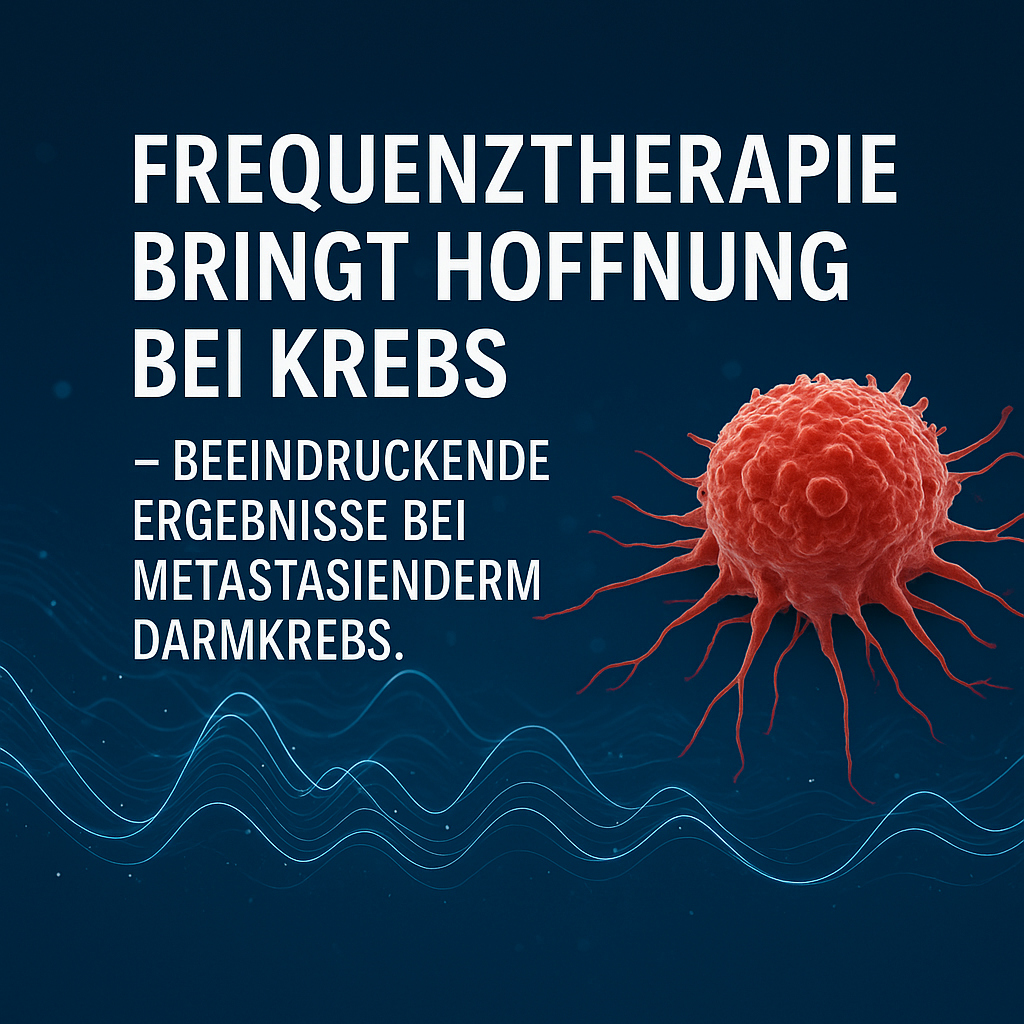
Integrative frequency therapy for metastatic colorectal cancer: An innovative therapeutic approach
NLS Informationsmedizin GmbH
Frequency therapy for oncological diseases
Introduction
Metastasising colorectal cancer, especially with liver involvement, is considered difficult to treat in conventional medicine. Standard therapy includes surgery and cytotoxic chemotherapy, but the prognosis is often sobering. In a recent case report from Australia, however, a remarkable therapeutic success was achieved through an integrative concept - with a central role for frequency therapy using electromagnetic fields.
The case: progress despite rejection of chemotherapy
A 52-year-old patient with metastatic colorectal carcinoma (stage IV, liver metastases) refused conventional chemotherapy. Instead, he opted for integrative treatment over 8 months. The protocol included:
- High-dose intravenous vitamins (including vitamin C, curcumin, quercetin)
- Drugs from the Oncology Repurposing Initiative (e.g. metformin, mebendazole)
- Mistletoe extracts and artemisinin
- Electromagnetic frequency therapy (Rife technology)
Results: Significant remission and high quality of life
Imaging procedures showed a significant reduction in liver metastases (from 5 to 1 small lesion) just 4 months after the start of therapy. A PET scan was negative for active tumour foci. The circulating tumour cell count also decreased significantly - an objective measure of reduced metastatic tendency.
Particularly noteworthy: the patient reported a high quality of life throughout, remained physically active and had no significant side effects.
The role of frequency therapy
The Rife-EMF therapy used targeted electromagnetic waves up to 5 MHz to influence tumour cells energetically. Clinical and preclinical studies indicate that such frequencies can:
- Disrupt cell division
- Inhibit tumour angiogenesis
- Induce apoptosis (cell death) in cancer cells
- Modulate immune reactions
These active components complement conventional medical approaches and offer promising prospects - especially for patients seeking alternative approaches.
Conclusion: Frequency therapy as part of a new paradigm
In this case, frequency therapy impressively demonstrates the potential of integrative oncology. Even though this is an individual case study, the results give hope and suggest that individualised frequency therapy for cancer is not only possible, but can be highly effective - especially in metastatic diseases with limited conventional medical options.
Note:
Frequency therapy is not recognised in conventional medicine. The methods presented here do not replace medical or alternative medical treatment. The content presented is intended to provide information and encourage interdisciplinary dialogue.
Ried, Karin, Peter Eng, and Taufiq Binjemain. "Metastatic Colon Cancer - An Effective Treatment Protocol of Integrative Therapies Including Electromagnetic Field Frequencies: A Case Report." Case Reports in Oncology 1324-1334. web.
